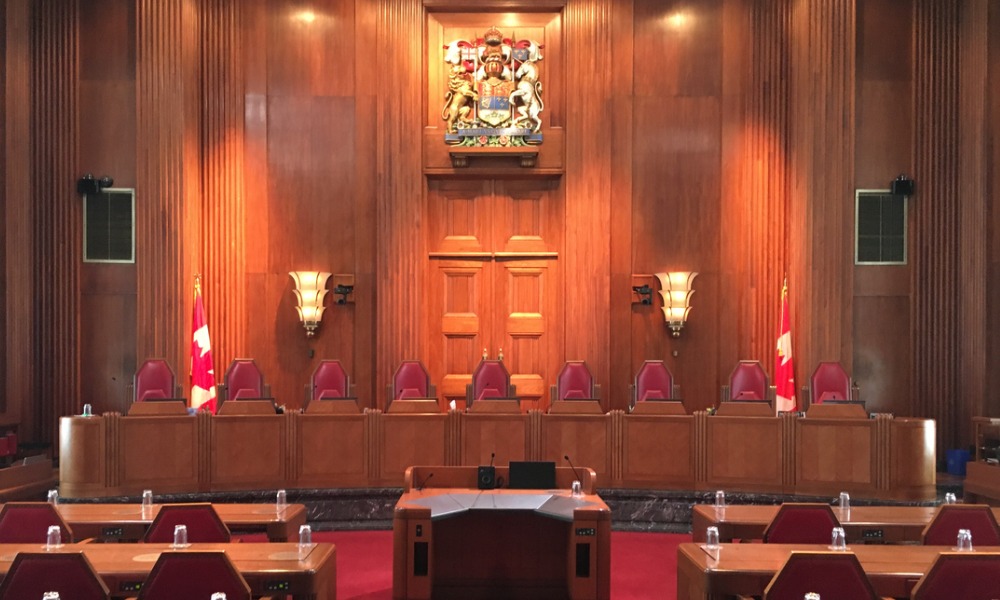Bencher sued for documents associated with legal regulator's equity, diversity, and inclusion initiatives

The Law Society of Ontario has reversed course and disclosed to bencher Murray Klippenstein the internal documents related to its equity, diversity, and inclusion (EDI) programs that he sued the regulator in 2022 to obtain.
Klippenstein sought the documents when he was elected bencher in 2019 because he says he was concerned about the integrity and validity of studies and surveys which formed the backdrop of a package of EDI policies the law society adopted in 2016. The law society’s position was that it was up to Convocation to decide whether to disclose them. He brought a claim to the Superior Court arguing that, based on statutory and common law and the principles of good governance, he was entitled to the information as a director of the corporation because it was necessary to allow him to carry out his due diligence and oversight role.
Klippenstein filed his statement of claim in June 2022 and followed up with a motion for summary judgment last April. Through their legal counsel, the law society delivered hundreds of pages of the requested documentation to Klippenstein’s Edmonton-based lawyer, William Kenny. The law society also agreed to pay Klippenstein’s legal costs.
“The several hundred pages of documents, which I'm still going through, unfortunately, confirm the indications I've had for years, which is that some of the major studies behind the Law Society's EDI programs and policies are, sadly, deeply misleading,” says Klippenstein. “The actual database for the major survey of the profession, which is the foundation of all our EDI programs, was not disclosed before this. I now see the numbers. It's a bit shocking.”
“The actual numbers in the survey were hidden from us in the reports, and they undermine what the reports said,” he says. “I'm kind of not surprised that they were hidden.”
Law Society of Ontario spokesperson Jennifer Wing declined Law Times’ request for an interview. She says the law society would not comment as the litigation remains before the court.
Many of the documents Klippenstein requested were related to a 2013 survey that helped inform a working group exploring challenges faced by racialized lawyers and paralegals. The working group’s report, “Working Together for Change: Strategies to Address Issues of Systemic Racism in the Legal Professions,” included 13 recommendations for law society policy.
In his claim, Klippenstein alleged statistical deficiencies in the 2013 survey, including a six-percent response rate; a failure to note the number of people surveyed; a self-selected, rather than random, sample; a failure to differentiate between lawyers and paralegals; and a failure to mention or assess the significance of non-response.
Most Read
Among the 13 policy recommendations resulting from the working group report was the “statement of principles” – that the law society require every licensee to “adopt and abide by a statement of principles acknowledging their obligation to promote equality, diversity, and inclusion generally, and in their behaviour towards colleagues, employees, clients and the public.” Convocation repealed the requirement in 2019. Also among the recommendations was a requirement that workplaces have a diversity policy, complete an EDI self-assessment every two years, and the LSO publish a public inclusion index based on workplace surveys every four years.
When he was elected as bencher on the StopSOP slate of candidates promising to repeal the statement of principles, Klippenstein requested the documentation but was rebuffed. The law society’s treasurer said she lacked the authority to hand over the material and referred the request to the strategic planning and advisory committee (SPAC), which would consider it and make a recommendation to Convocation. In response to Klippenstein’s claim, the law society argued that it was up to Convocation to decide whether he required the requested documents to fulfill his obligations as a bencher.
Klippenstein argued that as a bencher, he is an officer of the law society corporation and has the right to access and obtain any documents or records necessary to fulfill that role.
“The Law Society did not give a reason for its sudden change in position in now giving me the documents after years of resistance,” says Klippenstein. “I don't know what the Law Society's exact thinking was, but I've maintained for years that I, as a bencher, have important information rights.
“I am seeking full indemnity costs because I think it was reprehensible that I didn't get this information.”







